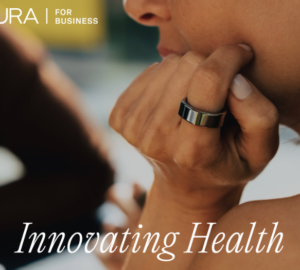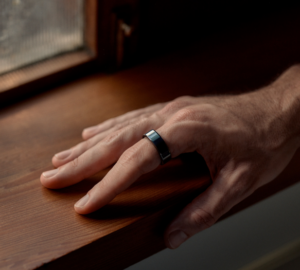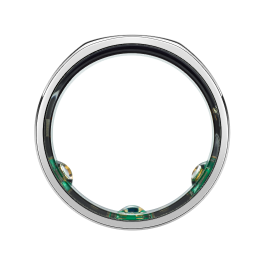The average workweek has become increasingly stressful for many people, leading some of them to find ways to cope at the end of the day or over the weekend.
When it comes to drinking, 63% of adults in the US indicate they consume alcohol. And although alcohol consumption had remained steady for decades, a shift has been quietly gaining momentum – driven in part by the success of Dry January – the number of young adults abstaining from alcohol is actually rising. In fact, a new poll from Gallup indicates that 39% of Americans now believe drinking in moderation is bad for health – up 11 points since 2018.
One Year No Beer (OYNB), a London-based organization whose mission is to “empower people to transform their relationship with alcohol,” aims to help individuals (100,000 and counting) to find healthier ways to cope with stress.
According to OYNB, people turn to alcohol as a means to escape the pressures of their demanding lives. “When people have a stressful day, they want to drink to help them relax,” explains Glyn Manginsay-Gourguechon, a program manager, and also a registered nurse, who works with OYNB. “Many OYNB clients are high-performing individuals, and the majority of our members drink because of how stressful their life is.” Alcohol’s anesthetic effect may be a quick remedy for stress-induced tension, but this coping mechanism comes at a cost, as alcohol is a depressant and can exacerbate feelings of anxiety over time.
OYNB offers a unique approach to managing stress that combines mindfulness, meditation, and monitoring an individual’s biometrics. This approach helps guide members toward a more thoughtful and intentional relationship with alcohol. Oura, which is part of a toolkit of available devices and techniques, is a substantial component of the OYNB program, because it provides individual biometrics that showcase the impact of the program, fueling data-driven results.
OYNB chose Oura Ring to capture the biometrics of their clients because it seamlessly and subtly integrates into daily routines. For example, OYNB members can meditate or practice a breathing technique anywhere without calling attention to themselves, Manginsay-Gourguechon explains.
RELATED: Gemma’s Journey to Being Alcohol-Free With Oura
Meditation: A Key Tool for Breaking the Cycle
OYNB has found that, for many of their members, incorporating meditation and mindfulness into daily routines can disrupt the stress-alcohol cycle. By activating the parasympathetic nervous system, meditation allows the body to recover and relax, offering a natural alternative to some of alcohol’s sedative effects. This connection between meditation and reduced alcohol cravings has become a cornerstone of OYNB’s approach, teaching members about the benefits of self-awareness through mindfulness, which helps reduce the craving for alcohol for many.
OYNB tailors a member’s mindfulness practice to suit their needs, leveraging Oura’s data insights to fine-tune recommendations based on stress levels. For instance, if OYNB detects stress in a member during an unguided meditation session, OYNB coaches may suggest transitioning to a guided session that promotes relaxation and may minimize anxiety around meditation.
LEARN MORE: Master Mindfulness for Resilience at Work
Unveiling the Meditation-Mindfulness Link
To help clients cultivate a lasting mindfulness practice, OYNB has also integrated Oura with communication platforms like Slack. When members choose to opt-in, the integration allows the organization to track meditation minutes and offer timely reminders. Over time, the data-driven approach pays off – according to OYNB, members experience increased heart rate variability (HRV), improved sleep metrics, and reduced wakefulness during the night.
By the fourth week of the program, OYNB’s members have successfully cultivated healthier habits, further solidifying the link between mindfulness and reduced alcohol cravings. With the practice ingrained, members begin to recognize the connection between meditation and their overall well-being, making it an important part of their daily routine.
Sleep & Self-Discovery
One of the most tangible impacts of alcohol reduction is on sleep. Quitting or cutting back on alcohol can initially disrupt sleep patterns, making it a challenging hurdle to overcome, Manginsay-Gourguechon shares. OYNB leverages the comprehensive sleep-tracking capabilities of Oura Ring, including resting heart rate data, to pinpoint sleep disruptors, such as late-night exercise or heavy meals before bedtime.
EXPLORE: How Alcohol Impacts Your Sleep
Data fluctuations detected by Oura Ring also offer insight into members’ struggles with quitting or reducing alcohol – OYNB proactively reaches out to provide support during this challenging transition, using data-driven decisions to offer personalized guidance.
According to Brian, OYNB client and Oura member, “My scores jumped a lot when I went totally dry, and now I’m interested in how high can I get my scores. Seeing my data has been super helpful – noticing that my resting heart rate has gone down consistently over time, watching as my HRV data continues to increase – because of Oura, I am really inspired.” He adds, “Oura messages and notifications, for example, to get up and move around a bit, or about bedtime – they’re little nudges that cumulatively can make an impact in terms of my behavior, which is helping me take better care of myself.”
Although alcohol is used by many as a quick escape from stress, OYNB and the sober-curious movement are forging a path toward a healthier and more mindful way of living. By embracing meditation, data-driven insights from Oura, and coaching, individuals are finding the tools they need to break free from the stress-alcohol cycle and rediscover a balanced, intentional life that supports success at every professional level.
DISCOVER: 9 Simple (and Science-Backed!) Ways to Lower Stress
Note: like many Oura business-to-business partners, including professional sports, elite academic institutions, and performance coaching services, OYNB leverages Oura Teams, a web-based platform, that allows account administrators to easily review the daily and trending biometrics of a group and its individuals. Within these organizations, individuals have consented into these services and can opt-out at any time. To learn more about Oura Teams, please visit our website. At Oura, your data privacy is extremely important to us, and we never share or review your individual biometric data without explicit consent.





